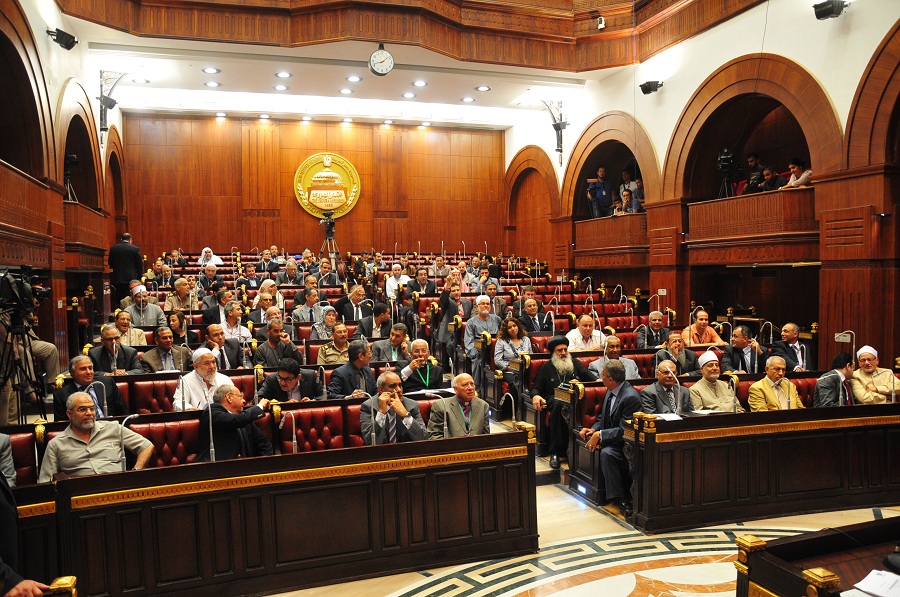
While the Administrative Judiciary Court is expected to determine the fate of Egypt’s second attempt at a Constituent Assembly on Tuesday, issuing a verdict on its dissolution, the assembly members have already released a draft constitution that was met with opposition from political parties and human rights organizations. Article 9, which defines the state’s role as it pertains to the Egyptian family, stands out as a controversial article that has garnered the attention of several human rights groups.
Article 9 reads, “Family is the basis of society and its foundations are religion, morality and patriotism.” It goes on to say, “The state and society ensure the authentic character of the Egyptian family, its cohesion, stability, and protecting its traditions and moral values.”
The article is ambiguous as to the state’s actual role in “ensuring” these aspects of the Egyptian family, as well as what specific traditions and moral values it seeks to uphold.
The Association for Freedom and Expression condemned Article 9 in its statement speaking out against elements of the constitution draft, especially the first part of the constitution, which outlines the role of the state and society. “The Association for Freedom and Thought and Expression considers that this crisis does not only lie in these texts that have been a target of criticism,” said the organization, “but also in the basic philosophy of the constitution included in a few articles in the first section on state and society, which makes customs, traditions, the family, religious values, and heritage goals in themselves that must be protected, even if this protection comes at the expense of the rights and freedoms of other citizens.”
The first sentence of the article is identical to the corresponding Article 9 in the 1971 Constitution, calling the family the “basis of society” and specifying its foundations. However, the second sentence of the 1971 version stated, “The state ensures the authentic character of the Egyptian family and the values and traditions that it embodies, while affirming and developing this character within Egyptian society.”
The new version of Article 9 introduces the terms “cohesion” and “stability,” raising concerns over the interpretation of those two words, particularly how they relate to divorce laws, a topic which has been the subject of discussion over the past two years.
The Egyptian family is a sensitive topic of discussion and is a concept that can be used to frame specific visions for the role of women in society. Earlier this year Freedom and Justice Party (FJP) members proposed the dissolution of the National Council of Women, calling for it to be replaced with a National Council for the Family, reflecting the “complementary roles of men and women.”
Egypt’s Family Law presents major obstacles that deprive women of the same recognition as men under the law, especially as relates to divorce. The Khuula’ law, adopted in Egypt in 2000, which permits women to divorce their husbands, has become a focal point of contention. Aspects of Egypt’s Family Law, including Khuula’, are currently coming under attack by both conservative and progressive movements. There are those who demand it to be reformed and give women more personal status rights and those who claim that aspects of it contravene Sharia Law.
As is the case with other articles addressing the role of the state in regard to society and personal freedoms, Article 9 utilizes important terms and phrases in an ambiguous manner that do not actively clamp down on freedoms, but provide enough leeway for the Egyptian government to do just that. At their best, parts of the constitution including Article 9 provide enough ambiguity that would allow for new legislation providing positive steps for women in society. At their worst, they could become the foundation upon which underprivileged members of society are further marginalized under the rhetoric of “tradition” and “moral values.”
Basil El-Dabh is a reporter for Daily News Egypt. He graduated from Georgetown University with a Bachelor of Arts degree in Political Economy.
Photo Credit: Daily News Egypt
Image: Constituent%20Assembly%20DNE_0.jpg
